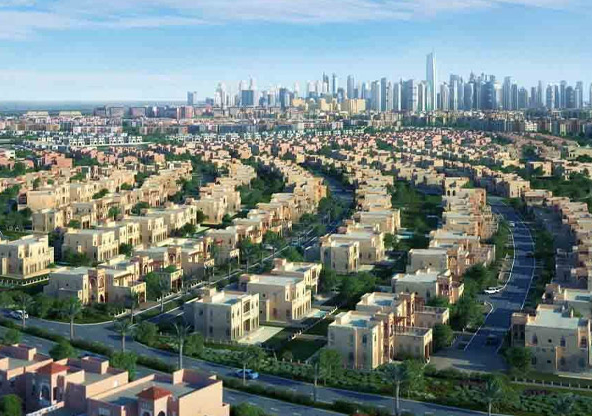Dubai, with its dynamic real estate market and iconic skyline, has become a prime destination for property investment. However, navigating the process of buying property in Dubai can seem daunting without a clear understanding of the laws, regulations, and best practices. In this comprehensive guide, we will walk you through the essential aspects of purchasing property in Dubai, providing you with the knowledge and insights necessary to make an informed investment decision.
In Dubai, property ownership is divided into two main categories: freehold and leasehold. Freehold properties allow investors, both residents and non-residents, to have full ownership rights over the property, including the land it is built on. Leasehold properties grant ownership for a specified period, usually 99 years, after which the property reverts to the landowner. Freehold properties are particularly popular among international buyers, as they provide long-term ownership and the ability to sell, lease, or mortgage the property without any restrictions.
Dubai has implemented a robust legal framework to protect the rights of property buyers and ensure transparency and fairness in transactions. The Dubai Land Department (DLD) is the governmental authority responsible for regulating and overseeing property transactions in Dubai. The DLD has established rules and regulations to safeguard the interests of buyers and sellers.
Non-UAE nationals can purchase freehold properties in designated areas, known as freehold zones, where foreign ownership is permitted. These areas include popular locations such as Dubai Marina, Downtown Dubai, Palm Jumeirah, Jumeirah Lakes Towers, and Emirates Hills, among others. It is essential to understand the legal requirements and restrictions in these areas before proceeding with any property purchase.
Dubai offers a diverse range of properties, from luxurious villas to high-rise apartments, catering to different lifestyles and budgets. Before making a purchase, it is essential to determine your preferences and requirements. Consider factors such as location, size, amenities, proximity to key facilities like schools, healthcare, and transportation, and the potential for future growth and development in the area.
Conducting thorough research is crucial in selecting the right property. Online property portals, real estate agencies, and property exhibitions can provide valuable information about available options and market trends. Visit multiple properties and evaluate their condition, amenities, and potential for capital appreciation. Engage the services of a reputable and experienced real estate agent who has a deep understanding of the Dubai market to help you find the property that aligns with your goals and requirements.
Whether you are a cash buyer or require financing, it is essential to evaluate your financial capabilities and set a budget. Dubai offers various financing options through local and international banks. Mortgage options are available to both residents and non-residents, subject to certain conditions.
When considering financing, determine the down payment requirements, interest rates, repayment terms, and associated costs such as registration fees, processing fees, and property valuation fees. Calculate your affordability by assessing your current financial situation, including your income, existing debt obligations, and other financial commitments. It is advisable to obtain pre-approval for a mortgage to understand your budget and enhance your negotiating position when making an offer on a property.
Before finalizing any property transaction, it is imperative to conduct thorough due diligence to protect your interests. This involves verifying the property’s ownership, obtaining a comprehensive property inspection report, and reviewing all legal documents related to the transaction.
Ensure that the property is registered with the Dubai Land Department and the seller has the legal right to sell the property. Engage the services of a reputable lawyer specializing in real estate to review contracts, ensure compliance with legal requirements, and safeguard your interests throughout the process. A lawyer can help identify any potential issues or risks associated with the property and guide you through the legal procedures.
Documentation required for property transactions typically includes a valid passport, Emirates ID (if applicable), proof of residency (if applicable), and a recent bank statement. The seller must provide the original title deed (also known as the “Oqood” in off-plan purchases) and a No Objection Certificate (NOC) from the developer if the property is still under construction.
Additional Considerations and Tips:
- Be aware of service charges, maintenance fees, and other ongoing costs associated with property ownership in Dubai. These fees cover the maintenance and management of common areas and amenities within the development.
- Research the developer’s reputation, track record, and completed projects to assess their credibility and reliability. This can help gauge the quality of construction and the developer’s commitment to timely delivery.
- Familiarize yourself with any future development plans in the area that may impact property values or accessibility. Dubai is known for its ambitious projects, and new developments can significantly impact the desirability and value of existing properties.
- Stay updated on the latest market trends, price fluctuations, and government policies that may affect the real estate sector. Monitor the performance of the property market, consult industry experts, and consider seeking professional advice to make informed investment decisions.
Buying property in Dubai offers tremendous opportunities for investors and residents alike. By understanding the legal framework, conducting thorough research, and seeking professional guidance, you can navigate the process with confidence. Remember to evaluate your financial capabilities, choose the right property, conduct due diligence, and stay informed about the ever-evolving real estate market. Armed with knowledge and careful consideration, you can make a sound investment decision and enjoy the rewards of property ownership in Dubai.





